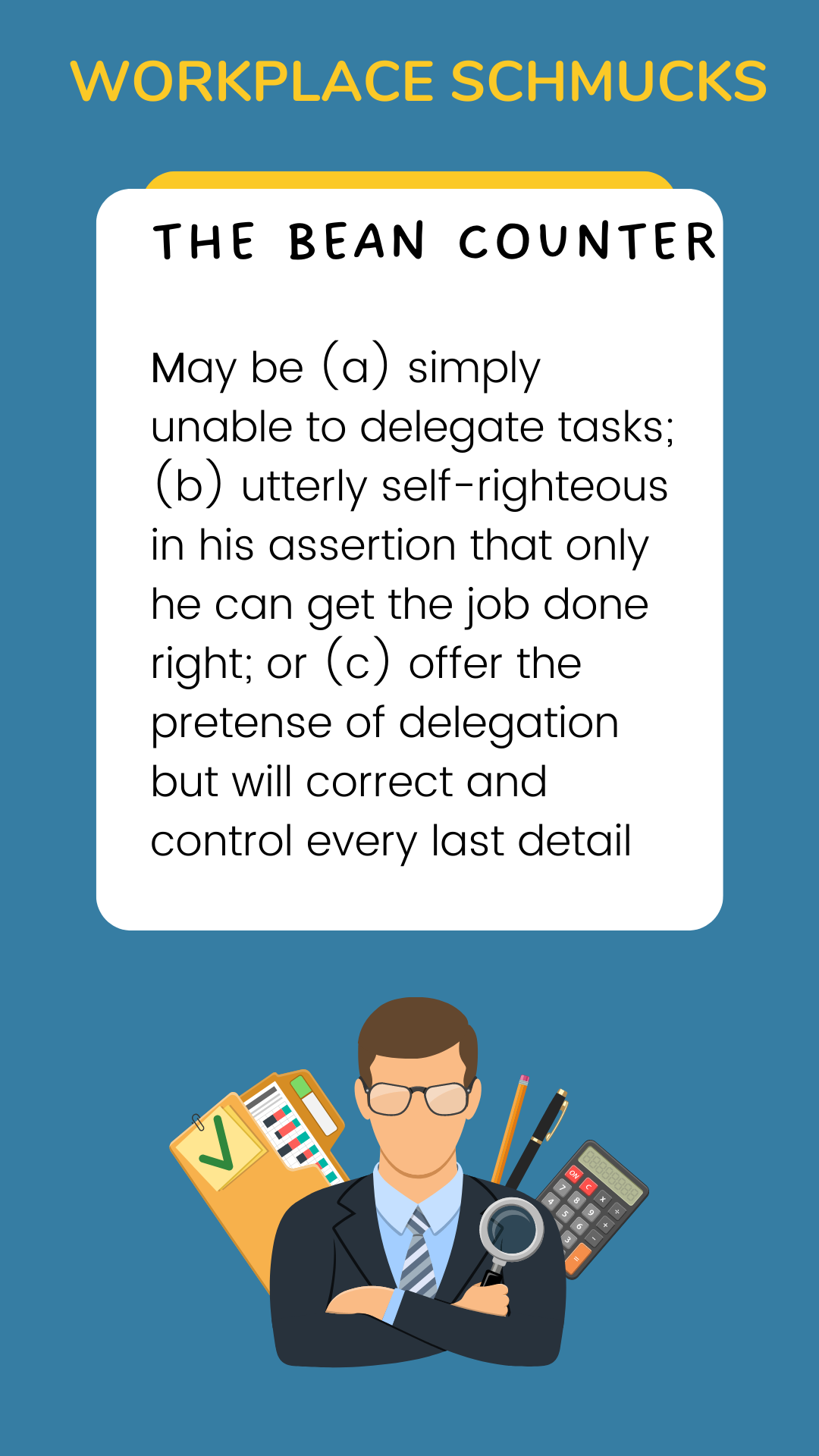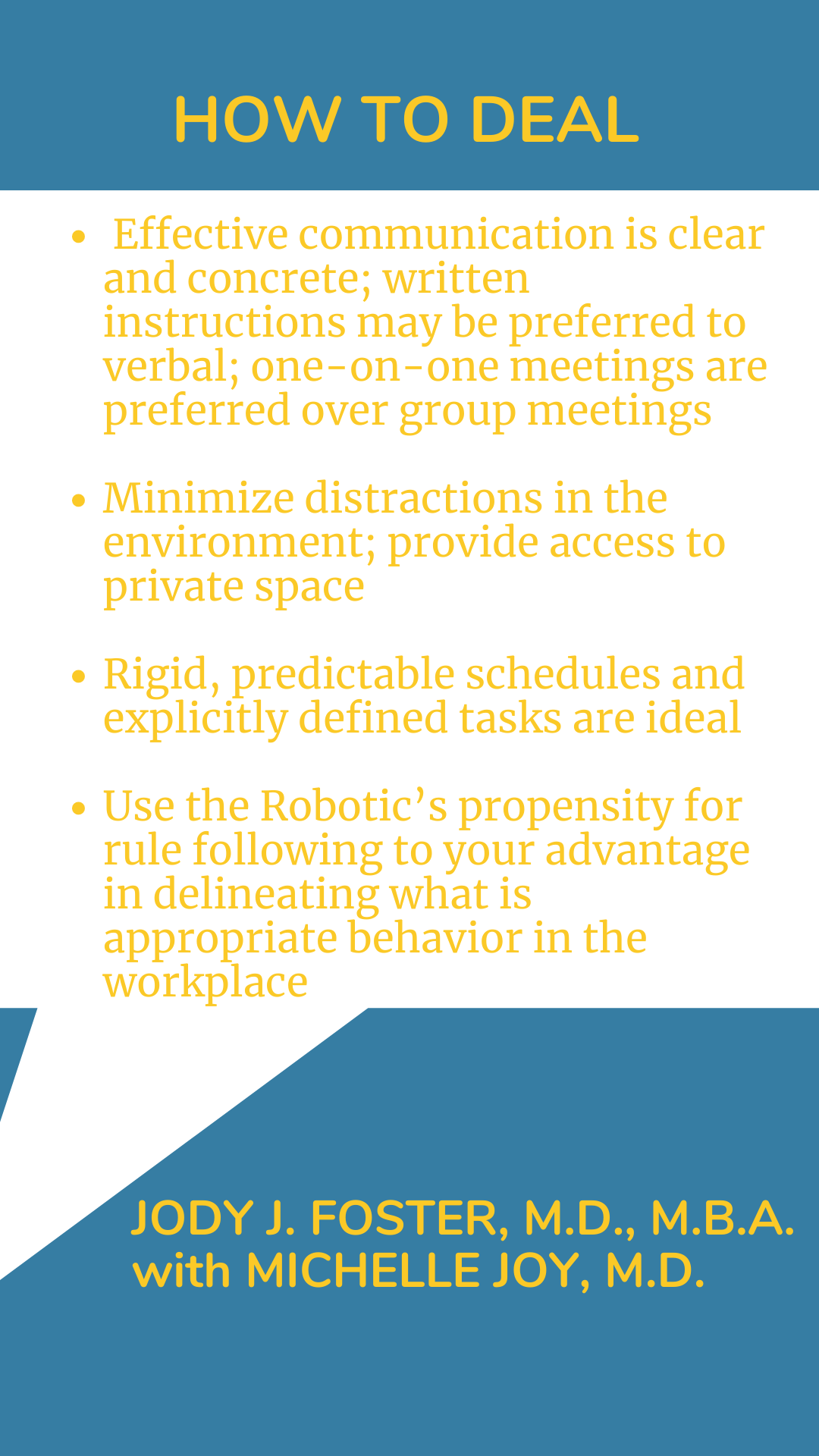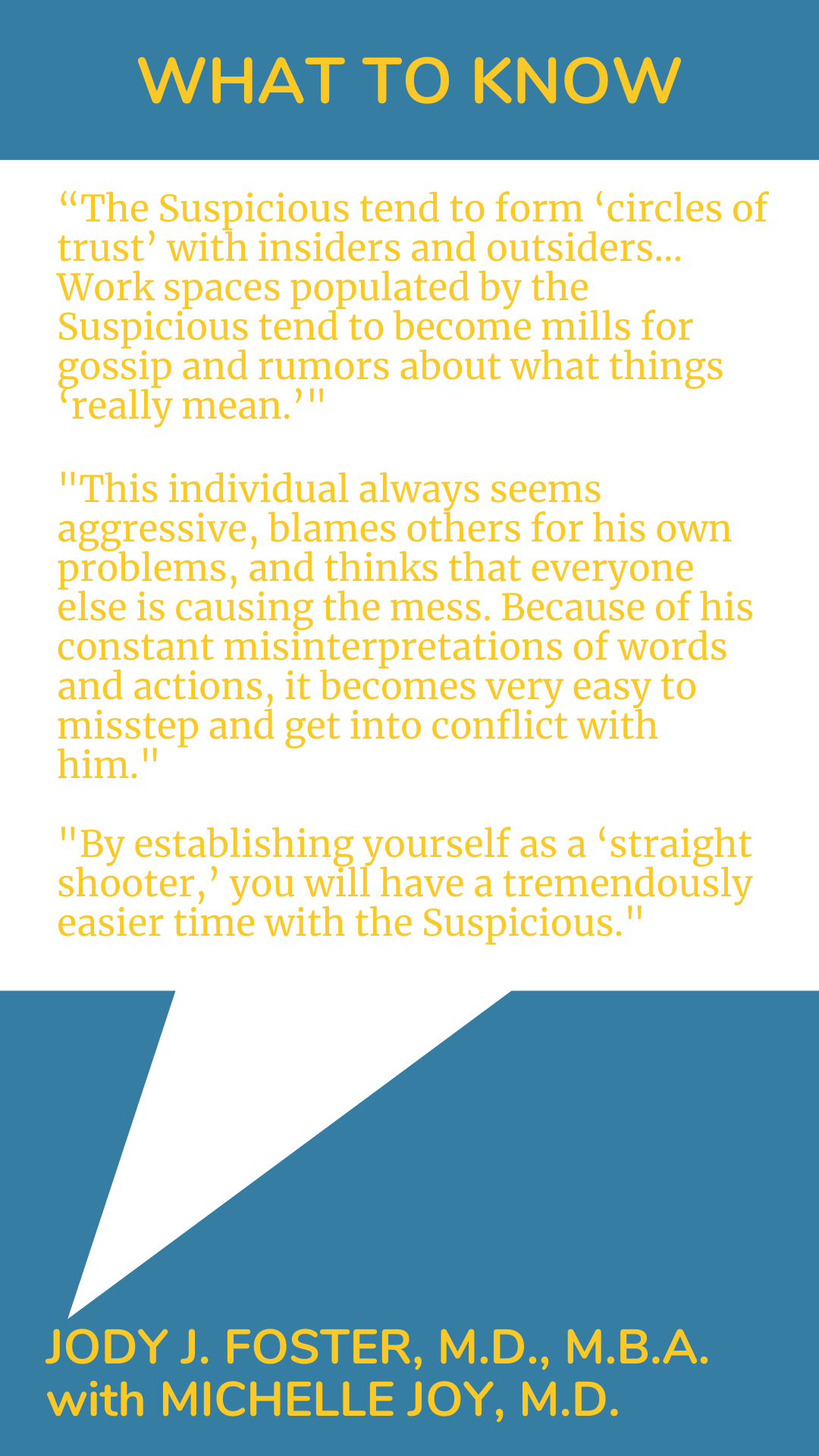The Schmuck in My Office

Dr. Jody Foster explains how her book about schmucks–stupid, foolish, or unlikeable persons–came to be: “Already a psychiatrist when I started business school, I was suddenly surrounded by people who found even commonplace interactions compelling. They were fascinated by their coworkers, and it was fun for me to explain the various permutations of office drama…They came to me with tales of people they called real schmucks: those they neither liked nor understood.”
According to Foster, “The title refers to the frustration and annoyance that so many of us feel when we just don’t understand someone or why that person is behaving in a way that doesn’t make sense to us. It’s easy to get angry and label someone a jerk or a schmuck.”
Foster says, “It’s much harder to try to understand the underpinnings of why he or she approaches the situation that way. But we must try, and in so doing we will learn about our colleagues and ourselves and create a safer, healthier, better-functioning workplace.”






















